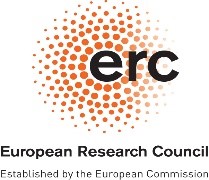Received:
2023-04-11 | Accepted:
2023-08-10 | Published:
2023-09-30
Title
Constructing a special tax regime for developing sciences, technologies and innovation in Cuba
Abstract
This paper aims to build a theoretical approach to the master lines of constructing the new Cuban tax law. This special tax regime allows the tax governance of several actors of the national economy directed to develop technologies, change of productive matrix and growth of Cuban science products' introduction in the Cuban enterprises net. We used the analysis-synthesis; induction-deduction; sociological; exegetic, and modulation theory as methods. The main results obtained provide the master lines for constructing a novel political approach towards future tax regime. The authors offer systematization of the Cuban economic scenarios and provide novel and practically instrumental suggestions for transforming the current tax regime.
Keywords
taxation, tax policy, tax regime, innovation, technologies
JEL classifications
K34
, H20
, H21
URI
http://jssidoi.org/ird/article/141
DOI
Pages
122-135
Funding
This is an open access issue and all published articles are licensed under a
Creative Commons Attribution 4.0 International License
References
Afif, Z., Islan, W. W., Calvo-Gonzalez, O., & Dalton, A. (2019). Behavioral science around the world: Profiles of 10 countries. Retrieved from Whashington DC: https://apo.org.au/node/223781
Search via ReFindit
Alonso Falcón, R., Montero, A., & Ferrer, L. (2022). Más de 1 400 mipymes en Cuba: ¿Cómo avanza el desarrollo de los nuevos actores económicos? Retrieved from http://www.cubadebate.cu/noticias/2022/01/18/mas-de-1-400-mipymes-en-cuba-como-avanza-el-desarrollo-de-los-nuevos-actores-economicos/
Search via ReFindit
Alt, J., Preston, I., & Sibieta, L. (2010). The political Economy of tax Policy. In J. Mirrlees, S. Adam, T. Besley, R. Blundell, S. Bond, R. Chote, M. Gammie, P. Jonhson, G. Myles, & J. Poterba (Eds.), Dimension of Tax Design (pp. 1304-1375). Oxford: Oxford University Press.
Search via ReFindit
Arrow, K. (1962). Economic welfare and the Allocation of Resources for Invention In C. o. E. G. o. t. S. S. R. C. Universities-National Bureau Committee for Economic Research (Ed.), The Rate and Direction of Inventive Activity: Economic and Social Factors (Vol. I, pp. 609-626). Princeton: Princeton University Press. https://doi.org/10.1515/9781400879762-024
Search via ReFindit
Bočková, N., & Pakšiová, R. (2022). Comparison of The Development of R&D Tax Super Deduction In Czechia And Slovakia. Economic And Societal Challenges Of The European Economy, 23. International Scientific Conference Economic and Societal Challenges Of The European Economy.Conference Proceedings, Silesian University in Opava, School of Business Administration in Karviná, September 13-15, 2022
Search via ReFindit
Castellanos, L. P. (2022). La inflación, el reordenamiento y el pronóstico de crecimiento de la economía cubana para el año 2022: una mirada desde la problemática de su inserción internacional. Revista Cubana de Economía Internacional, 9(1), 158-172. https://revistas.uh.cu/rcei/article/download/2794/2413
Search via ReFindit
CEPAL. (2020). Estudio Económico de América Latina y el Caribe 2021 (CUBA). Retrieved from Santiago de Chile: https://repositorio.cepal.org/bitstream/handle/11362/47192/67/EE2021_Cuba_es.pdf
Search via ReFindit
Díaz-Canel Bermúdez, M. (2021). ¿Por qué necesitamos un sistema de gestión del Gobierno basado en ciencia e innovación? Anales de la Academia de Ciencias de Cuba, 11(1). http://scielo.sld.cu/scielo.php?pid=S2304-01062021000100005&script=sci_arttext
Search via ReFindit
Díaz-Canel Bermúdez, M. M., & Delgado Fernández, M. (2021). Gestión del gobierno orientado a la innovación: Contexto y caracterización del Modelo. Revista Universidad y Sociedad, 13(1), 6-16. http://scielo.sld.cu/scielo.php?pid=S2218-36202021000100006&script=sci_arttext
Search via ReFindit
Efremova, E., & Gordienko, E. (2022). Digital innovation in the light of the experimental legal regime. Paper presented at the Digital Technologies in the New Socioeconomic Reality. Conference paper. Part of the Lecture Notes in Networks and Systems book series (LNNS, volumen 304) https://doi.org/10.1007/978-3-030-83175-2_9
Search via ReFindit
Elschner, C. (2013). Special tax regimes and the choice of organizational form: Evidence from the European Tonnage Taxes. Journal of Public Economics, 97, 206-216. https://doi.org/10.1016/j.jpubeco.2012.10.005
Search via ReFindit
Ferriere, A., Grübener, P., Navarro, G., & Vardishvili, O. (2023). On the Optimal Design of Transfers and Income Tax Progressivity. Journal of Political Economy Macroeconomics, 1(2), 000-000. https://doi.org/10.1086/725034
Search via ReFindit
Ferriere, A., Grübener, P., Navarro, G., &Vardishvili, O. (2021). Larger Transfers Financed with More Progressive Taxes? On the Optimal Design of Taxes and Transfers (December 1, 2021). CEPR Discussion Paper No. DP16781. https://doi.org/10.17016/IFDP.2022.1350
Search via ReFindit
Forscher, P. S., Wagenmakers, E.-J., Coles, N. A., Silan, M. A., Dutra, N., Basnight-Brown, D., & IJzerman, H. (2023). The benefits, barriers, and risks of big-team science. Perspectives on Psychological Science, 18(3), 607-623. https://doi.org/10.1177/17456916221082970
Search via ReFindit
García, C., & Molina, A. T. (2023). Nuevas Mipymes en Cuba y rediseño organizacional: una necesidad inmediata. Revista Espacios, 44(02). https://doi.org/10.48082/espacios-a23v44n02p05
Search via ReFindit
Hernández Montero, A., & García Álvarez, A. (2022). Economía cubana: tendencias y desafíos. Una contribución a la formulación del Marco de Asistencia de las Naciones Unidas para el Desarrollo (MANUD), período 2020-2024. Economía y Desarrollo, 166(2). http://scielo.sld.cu/scielo.php?pid=S0252-85842022000200009&script=sci_arttext
Search via ReFindit
Jacquet, L., & Robin, S. (2023). R&D Credits across the European Union nonsense or common sense? Paper presented at the R&D Credits across the European Union nonsense or common sense? Paris.
Search via ReFindit
Jančičková, L., & Pakšiová, R. (2022). Application of the super-deduction of R&D costs by tax entities in the Slovak Republic according to the grand criterion number of employees. Acta Academica, 22(1), 62-74. https://doi.org/10.25142/aak.2022.005
Search via ReFindit
Limonta Montero, R. (2021). La cuestión jurídica del apalancamiento en las MIPYMES en Cuba. Cubalex, 1, 1-16. https://www.researchgate.net/profile/Reynier-Limonta-Montero/publication/364623616_La_cuestion_juridica_del_apalancamiento_en_las_MIPYMES_en_Cuba/links/6353de7996e83c26eb432692/La-cuestion-juridica-del-apalancamiento-en-las-MIPYMES-en-Cuba.pdf
Search via ReFindit
Limonta Montero, R. (2022). El sistema de derecho tributario ante el fenómeno migratorio. Especial referencia al contribuyente circular. Un análisis desde Cuba (The Tax Law System in the Face of the Migratory Phenomenon. Special Reference to the Circular Taxpayer. An Analysis from Cuba). Revista Derecho Fiscal, (20). https://doi.org/10.18601/16926722.n20.08
Search via ReFindit
Maceira, E. P. (2014). Del deber de contribuir a la fiscalidad participativa. Derecho y Cambio Social, 11(37), 32-19. https://dialnet.unirioja.es/servlet/articulo?codigo=4750973
Search via ReFindit
Makeeva, E., Murashkina, I., & Mikhaleva, I. (2019). The impact of R&D tax incentive programs on the performance of innovative companies. foresight, XXI (5), 545-562. https://doi.org/10.1108/FS-06-2018-0063
Search via ReFindit
Mirrlees, J. A., & Adam, S. (2010). Dimensions of tax design: the Mirrlees review: Oxford University Press.
Search via ReFindit
Noked, N. (2019). Designing R&D Incentives in Hong Kong. U. Pa. Asian L. Rev., 14, 41. = https://heinonline.org/HOL/LandingPage?handle=hein.journals/etalr14&div=5&id=&page
Search via ReFindit
Otero, L. S., & Moya, A. C. (2020). Tributación y cooperativismo: el régimen fiscal de las cooperativas no agropecuarias (CNA) en Cuba. Revesco: Revista de Estudios Cooperativos, (134), 41-50. https://doi.org/10.5209/reve.65489
Search via ReFindit
Qian, T., Zhan, Y., & Pan, S. (2022). Can the Super-Deduction of R&D Expenses Boost R&D Investment? Firm-Level Evidence from China. Firm-Level Evidence from China. SSRN https://doi.org/10.2139/ssrn.4062614
Search via ReFindit
Sánchez, C. R., & de Haro, C. O. (2004). Régimen tributario de las actividades de Investigación y Desarrollo e Innovación Tecnológica en el Impuesto sobre Sociedades. Revista Técnica Tributaria, 3(66), 35-51. https://revistatecnicatributaria.com/index.php/rtt/article/download/1569/2759
Search via ReFindit
Tufetulov, A., Davletshin, T., & Salmina, S. (2015). Analysis of the impact of special tax regimes for small business financial results. Mediterranean Journal of Social Sciences, 6(1S3), 503. https://doi.org/10.5901/mjss.2015.v6n1s3p503
Search via ReFindit
Zhang, G., Cheng, P., Sun, H., Shi, Y., Zhang, G., & Kadiane, A. (2021). Carbon reduction decisions under progressive carbon tax regulations: A new dual-channel supply chain network equilibrium model. Sustainable Production and Consumption, 27, 1077-1092. https://doi.org/10.1016/j.spc.2021.02.029
Search via ReFindit
Zhu, N., Bu, Y., Jin, M., & Mbroh, N. (2020). Green financial behavior and green development strategy of Chinese power companies in the context of carbon tax. Journal of Cleaner Production, 245, 118908. https://doi.org/10.1016/j.jclepro.2019.118908
Search via ReFindit












 RSS 1.0
RSS 1.0